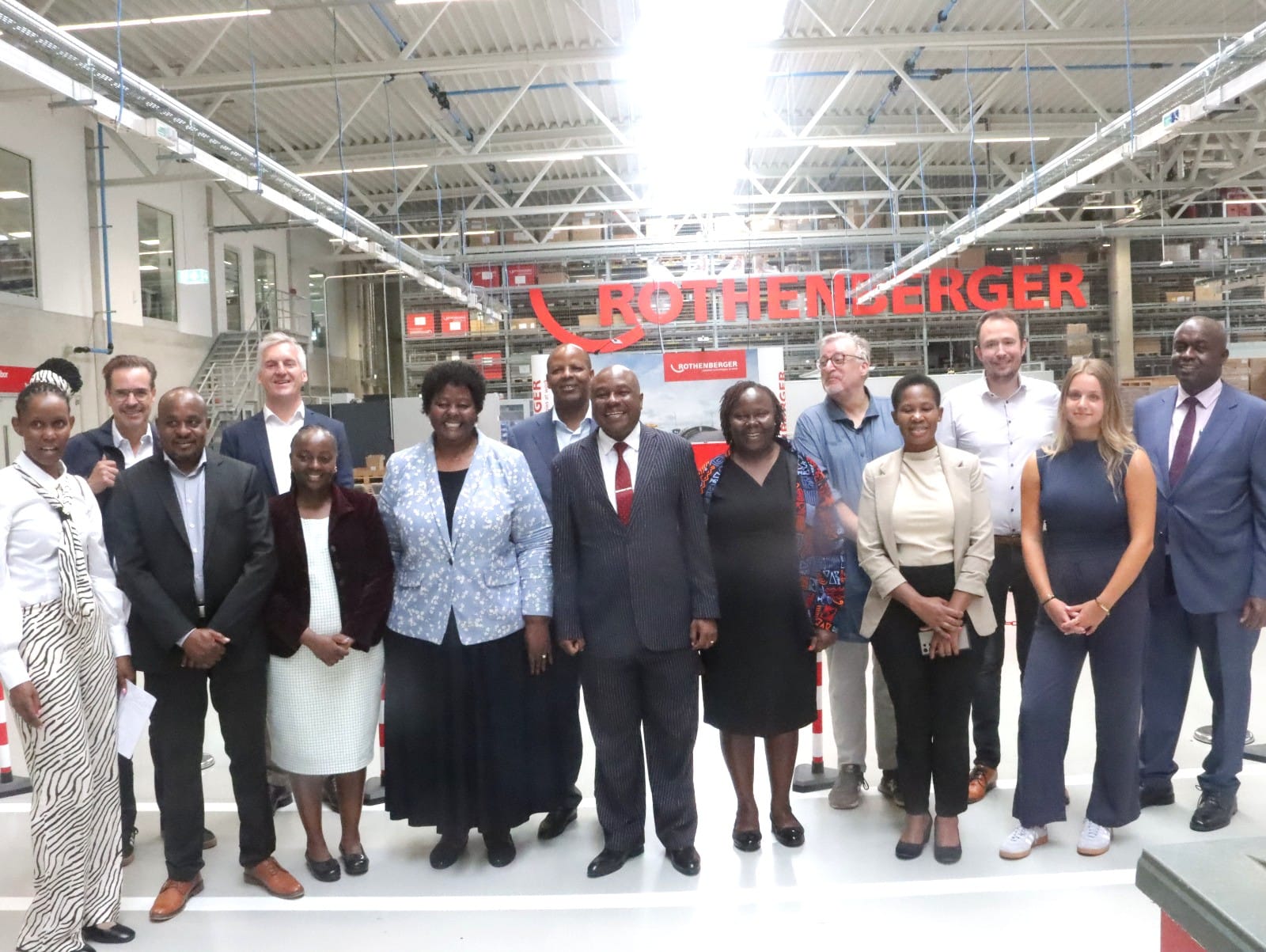
The bilateral labour agreement signed between Kenya and Germany in 2023 is beginning to bear fruit as a government delegation tours German cities for implementation engagements.
Led by Labour Principal Secretary Shadrack Mwadime, the team is in the country to engage employers from various sectors.
According to Mwadime, the agreement is now moving beyond policy paperwork into actionable partnerships.
“This is not just a courtesy call or ceremonial diplomacy, we are here to make the agreement work,” Mwadime stated during a stakeholder meeting in Frankfurt.
“Our goal is to link skilled Kenyans to credible employers while ensuring systems are in place for worker welfare, integration, and rights protection.”
The agreement establishes a framework for structured cooperation on labour mobility, vocational training, apprenticeships, and knowledge exchange.
Among the delegation’s first stops was Rothenberger, a leading industrial player in pipe tool manufacturing.
The engagement explored real job placements across technical roles such as milling, machine design, maintenance, and hydraulic systems, all areas where Kenya has potential talent.
Mwadime pointed out that the visit marks the start of concrete steps aimed at creating structured employment opportunities for Kenyans in the German labour market, transitioning from unregulated migration to state-facilitated, skill-based placements.
“We are keen to understand the market needs and align our training and certification systems to meet international standards,” he said.
It is part of the wider strategy to tap into overseas job markets, particularly in Europe, while simultaneously addressing unemployment among the youth.
During the tour, the delegation held consultations with key industry players and institutional partners.
Also hosting the team was Frankfurt Chamber of Commerce and Industry (IHK) representative Jürgen Ratzinger, who convened a session with various German companies to discuss expectations, skill gaps, and adaptation needs for incoming Kenyan workers.
The goal, Mwadime said, is to solidify pathways for skilled Kenyan youth to access job opportunities in the German economy, which is facing an ageing workforce and labour shortages in technical fields.
The delegation includes top officials from the Ministry of Labour, NSSF, NITA, NEA, and other key agencies.
The team is expected to hold further meetings in Berlin with 24 firms spanning diverse industries.














